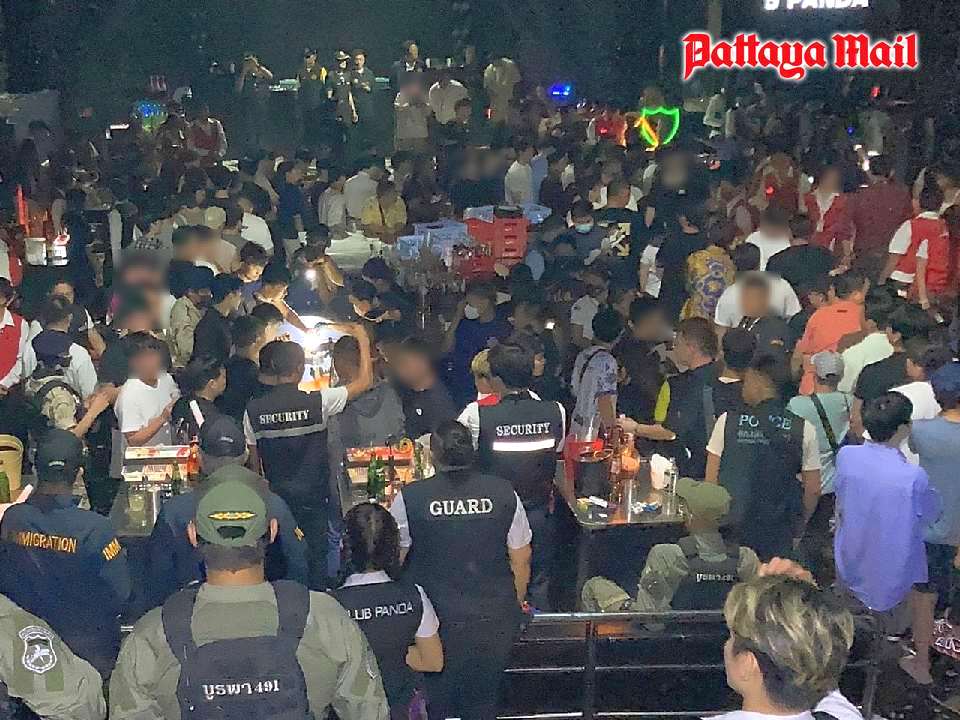
PATTAYA, Thailand – The past six months have witnessed a huge after-dark suppression policy which has involved thousands of police and dozens of entertainment spots nationwide. The ongoing operation is part of the “5-Free” policy trying to ensure that nightery venues are child-free, drug-free, weapons-free, prostitution-free and safe. The categories were formally adopted as government policy last September.
The policy was first announced by interior minister Anutin Charnvirakul whose deputies have even supervised some of the police raids. These included the closing of a pub in Pattaya after over 200 customers were found to have purple urine, indicating drugs use such as ketamine and methamphetamines. Although the campaign has been national, Pattaya seems to have borne the brunt with over 20 known raids on licensed premises. In most cases the authorities had been informed by “concerned citizens”, a group which likely included business enemies as well as worthy opponents of moral turpitude.
What’s new about the 2024 crackdown is the large variety of police and civilian agencies attending the scene. They have included local, provincial and immigration police as well as Bangkok-based units such as the anti-trafficking police and the Central Investigation Bureau. These have been accompanied by senior officers of the civilian Department of Employment and the Department of Provincial Administration. The latter is responsible for the licensing of all clubs in a particular district. This inter-agency cooperation, unprecedented in its evolving scope, has been encouraged by Cabinet members who are keen to see a “cleaner” image for Pattaya in particular.
Most of the 1,500 or so individuals arrested in these Pattaya raids were Thais, but around 300 foreigners, including westerners, were found to have recently used drugs. A handful were arrested for working without a permit, mainly bar staff, but these were usually from neighboring countries (with the exception of a solitary British DJ). Other club-related offences included being open after permitted hours, firearms in the car park, online gambling, failure to obtain a music licence and. In one case, accompanying unsavory characters.
What happens to westerners arrested following these raids depends on the circumstances and on police discretion. Typically, those who test positive for banned substances are taken to the police station and, after signing statements and proving ID, are released pending the payment of a fine. Their details are recorded by immigration to prevent absconding before they pay. They are likely to be banned from re-entry to Thailand from one to 99 years dependent on the seriousness. Those involved in managing licensed premises, drugs dealing, child molestation or other crimes will be tried in court at a later date and forbidden to quit Thailand pending sentence. This procedure can take months.
There is nothing new about night-time Pattaya raids on pubs and clubs. They began in the 1960s after the introduction of the entertainment venue act which banned prostitution on licensed premises. However, the 2024 “5-Free” policy is a much broader initiative throughout Thailand and involves a new level of cooperation between government agencies not hitherto seen. With Christmas fast approaching, a happy new year certainly won’t entail joining the queue to take a urine sample.










